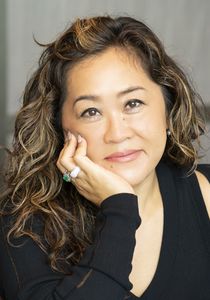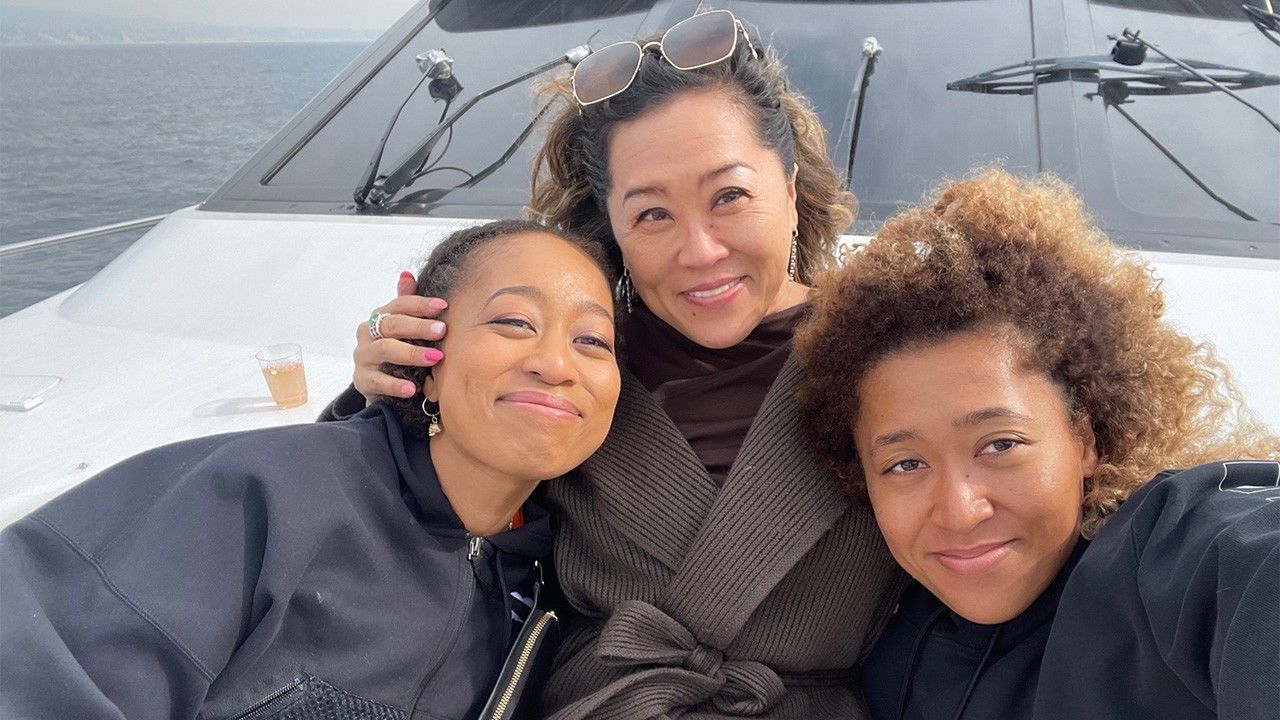
Ōsaka Tamaki: Mom of Tennis Star Ōsaka Naomi on Life and Her Daughter’s Determination
Sports People- English
- 日本語
- 简体字
- 繁體字
- Français
- Español
- العربية
- Русский
Evolving Together
Japanese tennis superstar Ōsaka Naomi recently made another significant move in her career when she revealed that she was leaving talent agency IMG and starting her own enterprise, Evolve, with her agent Stuart Duguid. Pundits have speculated about Ōsaka’s motivation, but the four-time Grand Slam winner’s mother Ōsaka Tamaki has her own take. “She was limited by being at a big agency,” declares the elder Ōsaka. “But she’s her own boss now and is free to do what she wants.” Adding with a chuckle, “Naomi likes to call the shots in her life. She gets that from me.”
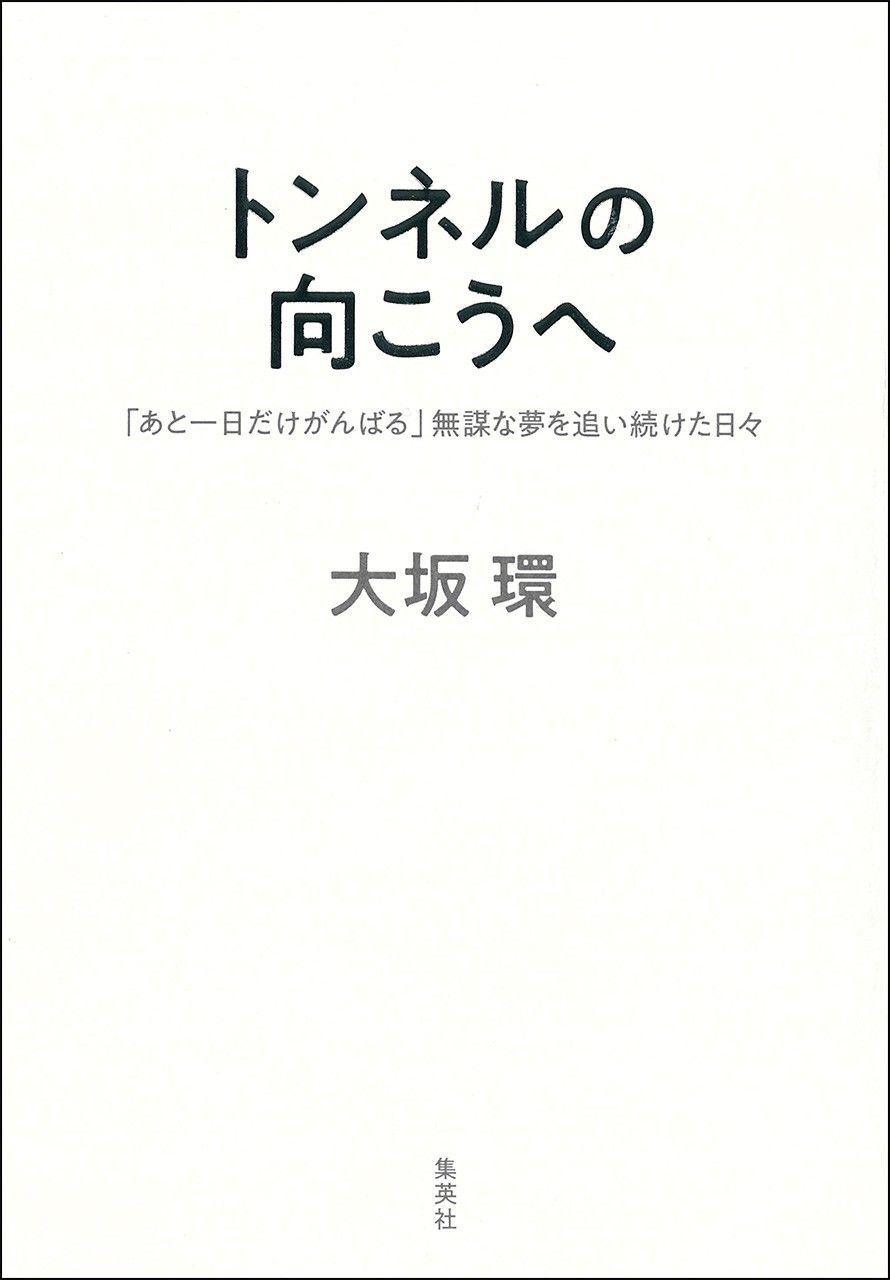
The cover of Tamaki’s book Ton’eru no mukō e (The Other End of the Tunnel).
At a turning point in her own life, Tamaki has recently penned an autobiography, Ton’eru no mukō e (The Other End of the Tunnel) that touches on such defining aspects of her life as her childhood in her native Hokkaidō, marriage to Haitian-American Leonard Francois, and raising two daughters to play professional tennis. Her story is a courageous and inspiring tale of a Japanese woman who lives life on her own terms. I recently sat down with Tamaki at her home in Florida to talk about her book, family, and new projects she has on the horizon.
YAMAGUCHI NAOMI You keep a busy schedule. How did you muster the energy to write such a revealing autobiography?
ŌSAKA TAMAKI The first thing I did was go through all my old photos and videos. This took me back to the different events of my life, and once I started writing, the words just flowed out. There was so much to cover, but I felt I needed to get it all down.
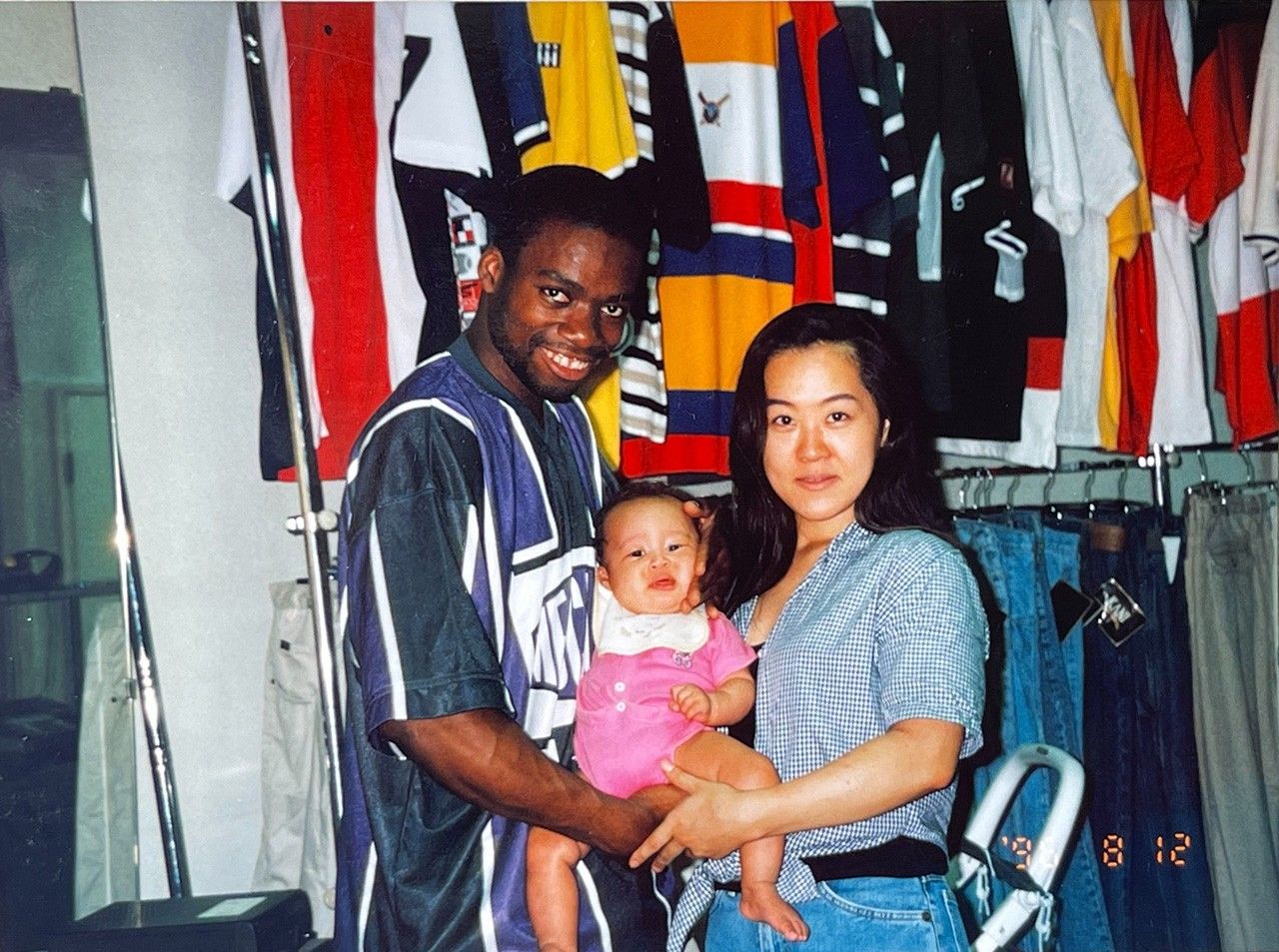
Ōsaka Tamaki (right) with husband Leonard Francois and four-month-old daughter Mari at their small import clothing shop in Osaka. (© Ōsaka Tamaki)
Tennis Idols
YAMAGUCHI It’s well known that your husband Leonard was a novice to tennis when he started out coaching Mari and Naomi as little girls, but was inspired to do so by Richard Williams, who likewise had no background in the sport when he set out training daughters Serena and Venus. However, I was surprised at you revealing that your husband started preparing your oldest daughter Mari to be an athlete while she was still an infant.
ŌSAKA He would do things to help her develop balance and trunk strength, but it was more play than anything that might be considered actual training. He’s always been way more into sports than me. Back then he was always off doing things like soccer, basketball, cycling, and running. He certainly daydreamed about bringing up the kids to be athletes. But when the Williams sisters stormed onto the scene, this went from being a vague idea to a concrete goal.
YAMAGUCHI Mari was three and Naomi not yet two when Serena won her first US Open at the tender age of 17. After watching Venus win the title the following year, you and your husband decided to raise your daughters to be professional tennis players. What was it about the Williams sisters and the sport that inspired you?
ŌSAKA We were awestruck by Serena and Venus. Here were two black teenage sisters in a sport dominated by white players traveling the world, meeting different people, and experiencing new cultures. It was a life most girls their age could only fantasize about. I honestly felt that being a tennis player was a dream profession.
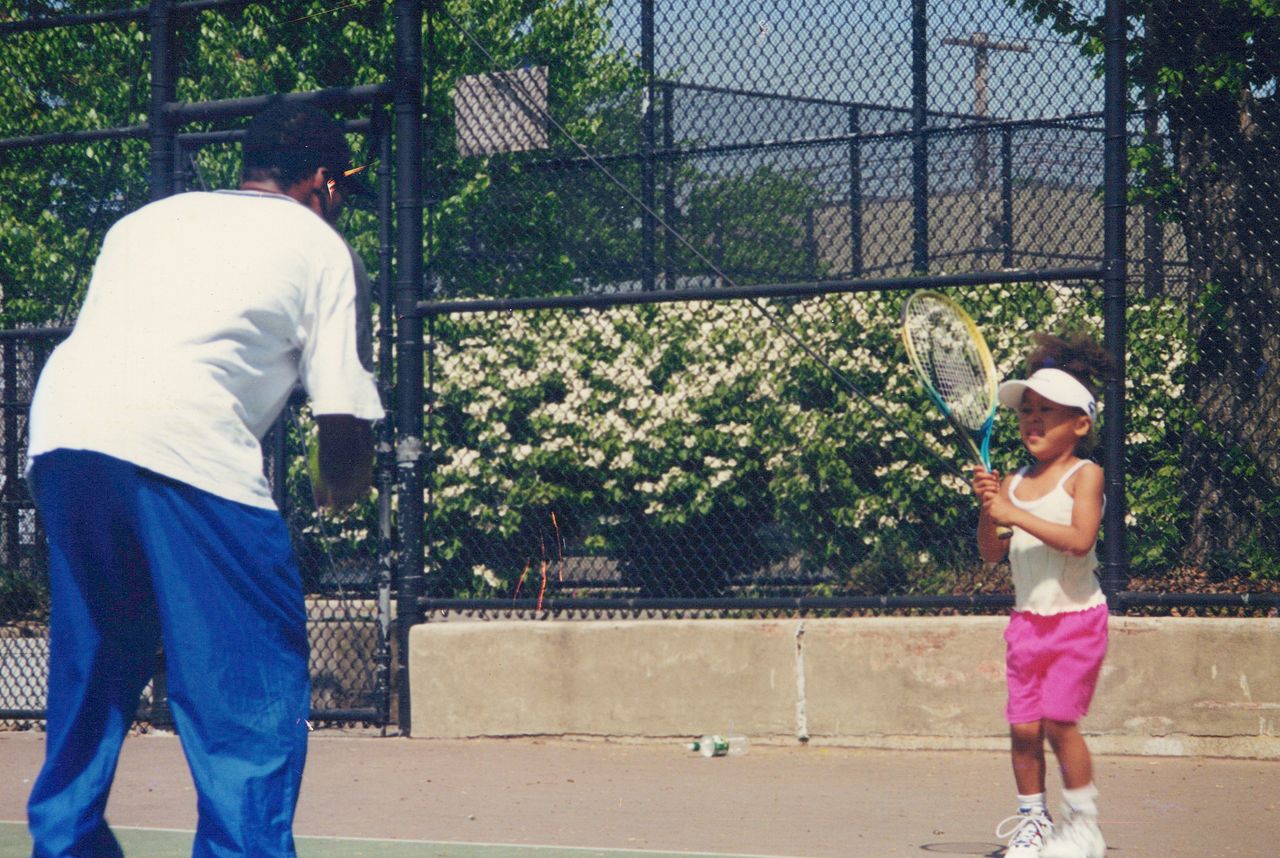
Three-year-old Naomi (right) practices with father Leonard at a public tennis court in New York shortly after the family moved to the city. (© Ōsaka Tamaki)
The globetrotting lifestyle was more of a motivator for us than the money, although that did have appeal as we were just scraping by. At the time I was helping my husband with his import clothing shop while also working part time at the call center of a mail-order company. We were getting by on about three hours sleep most nights. However, seeing the Williams sisters took our minds off our struggles to make ends meet and started us dreaming a brighter future for our little girls. Our hopes were highest for Mari, who was very athletic even as a little girl.

Sisters Mari (left) and Naomi show off their first-place trophies from a junior tennis regional event. (© Ōsaka Tamaki)
Social Backdrop
YAMAGUCHI Naomi likes to portray herself as a shy introvert, but she has learned to use her superstar status to draw attention to social issues. In 2020, she made a powerful statement about racial injustice with her support of the Black Lives Matter movement, and in 2021 she boycotted press conferences to raise awareness of the mental health of athletes. What is your take as her mother?
ŌSAKA She is extremely shy by nature. No joke, she used to spend all her free time at home either playing video games or chatting with her sister. Her success has brought her into contact with different people, though, including her boyfriend and influential figures in sports and other fields, enabling her to slowly come out of her shell.
She remains fiercely independent. The idea of wearing masks at the US Open bearing the names of victims of racial injustice or police brutality was completely her own. There were people around her who expressed concern about potential backlash, but rather than dissuade her, it made her more determined go through with it. She’s like me in that sense. Telling her not to do something only motivates her to do it more.
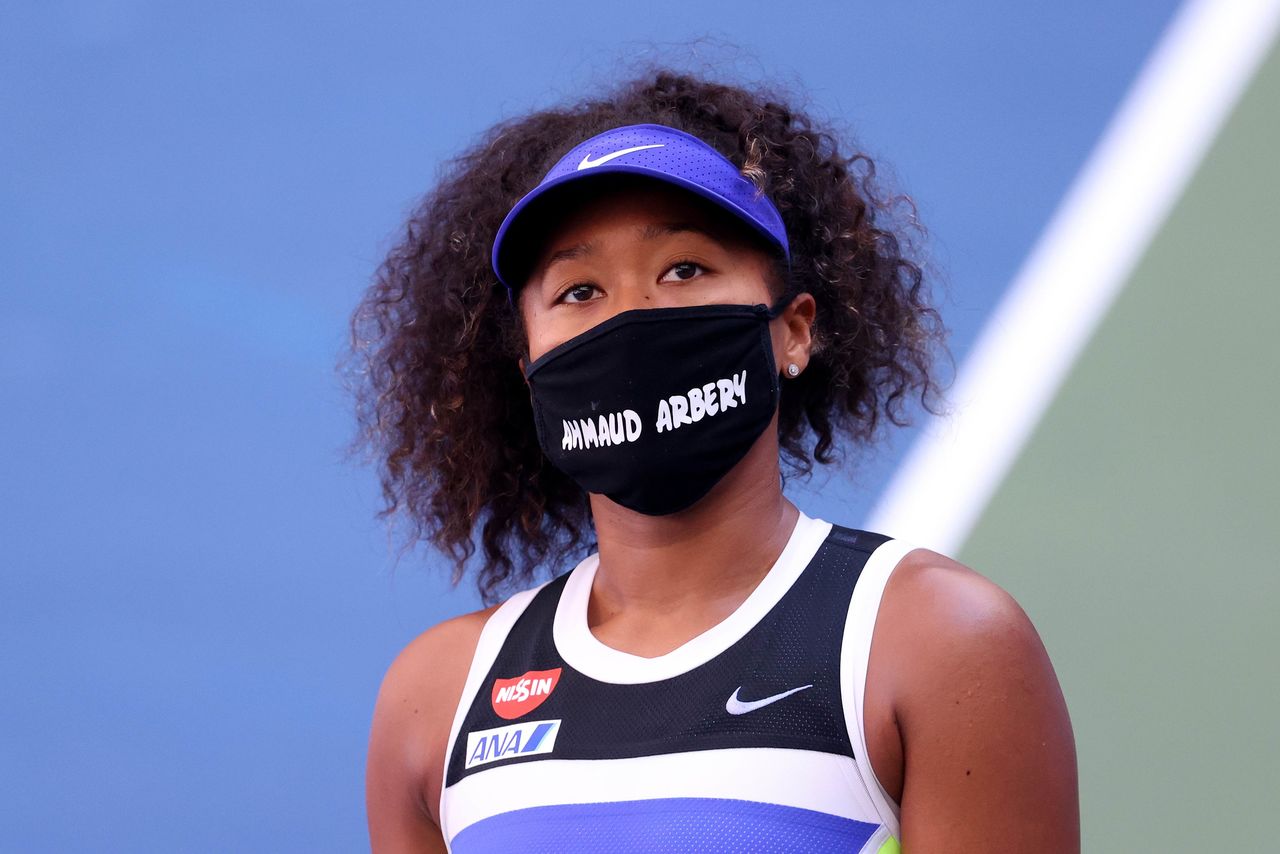
Ōsaka Naomi wears a mask in honor of Ahmaud Arbery, a black man murdered in a hate crime, following her third-round win at the US Open on September 4, 2020, to protest racial injustice. (© AFP/Jiji)
YAMAGUCHI What are you up to now that Naomi has climbed to the upper echelon of tennis and Mari has moved on from the sport? I heard you’re establishing a kindergarten and school in Haiti.
ŌSAKA Yes, we’re pouring a lot of time and energy into the project. We’re actually building on a kindergarten established by a volunteer group we set up when we lived in Osaka. It has since developed into a tennis academy, with courts, a kindergarten and school, and a large dormitory. There are over 200 students and a dedicated staff that includes teachers, coaches, and security and janitorial workers. It’s its own little community now. Our dream is for it to eventually produce competitive tennis players.
At the moment a boy from the academy is studying at a high school in Osaka. We hope to expand on this and give more students the opportunity to study and train in other countries. Sending Haitian children abroad to live is a challenging proposition both financially and logistically, though. We’re currently wrestling with how to fund exchange programs and are hashing out how best to support students while they are overseas. There are a lot of hurdles to overcome, but we’re determined to make the students’ dreams come true.
YAMAGUCHI Naomi is a role model for children in Haiti, Japan, and elsewhere. Her story also shows parents that things like nationality and family background are not barriers to raising a child to be a professional athlete. What would you say to moms and dads harboring such dreams?
ŌSAKA I would say be flexible in working toward your goal. There is no one path to success. Our decisions reflected our tight financial situation. But someone with a little more money or personal connections will have different options available to them. What’s most important is to pour 120 percent of yourself into whatever approach you settle on. Things will not go exactly as planned, but if you’re totally committed, you’ll be able to overcome the inevitable hurdles and have a better chance of reaching your target.
You have to keep things in perspective, though. Deciding to bring your child up to be a professional tennis player doesn’t give you the right to foist all your expectations on your son or daughter. I’ve seen overly competitive parents berate their children for losing a match or throw their tennis bag across the court in a fit of rage. You risk stifling your child by focusing too heavily on winning. Rather than shooting for glory early on, it’s better for a young athlete to remain hungry and humble.
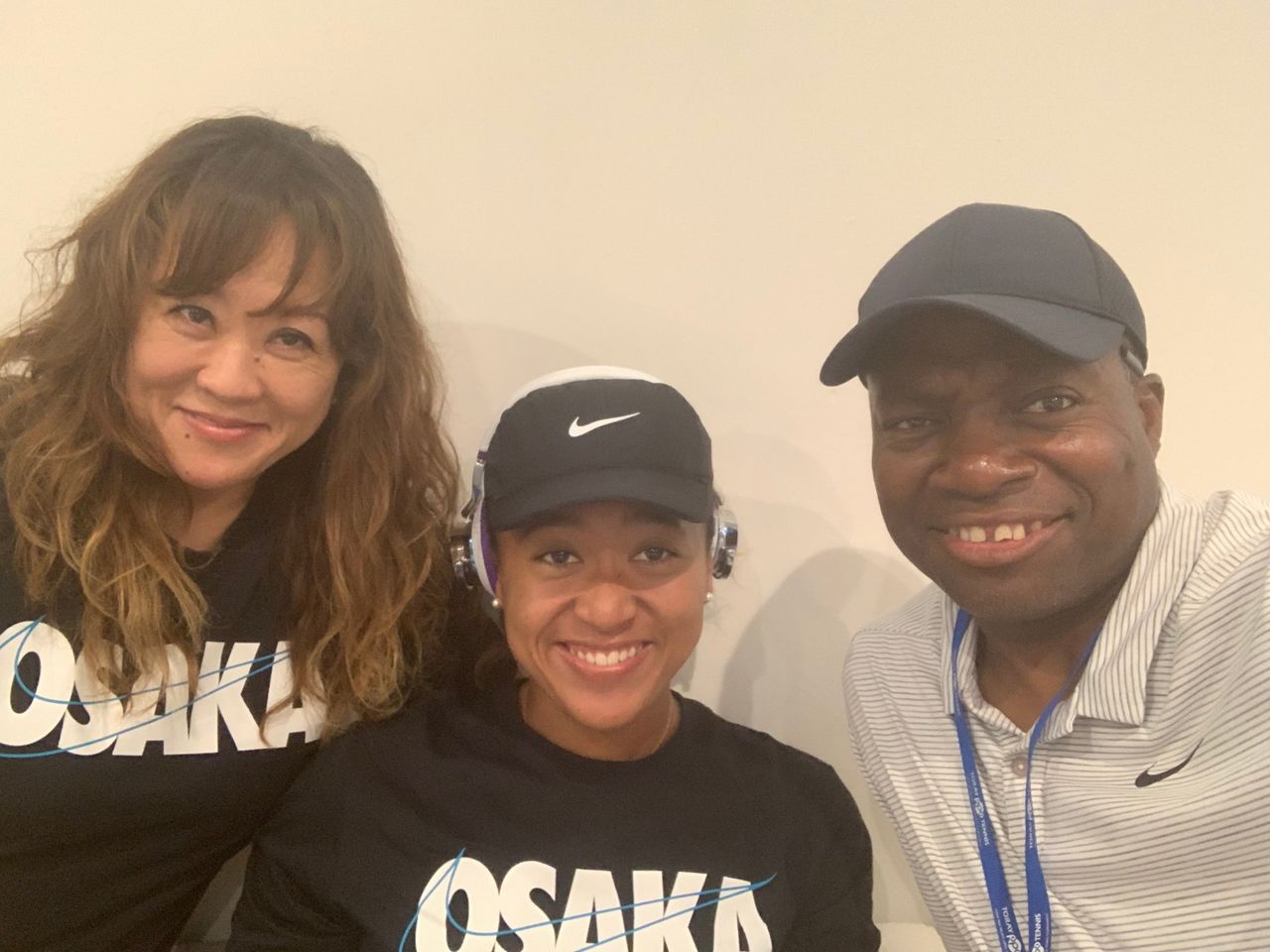
Tamaki (left) and husband Leonard pose with daughter Naomi in September 2019 after she won the Toray Pan Pacific Open, held in Osaka. (© Ōsaka Tamaki)
(Originally published in Japanese. Banner photo: Ōsaka Tamaki poses with her daughters Mari [left] and Naomi [right]. All photos courtesy Ōsaka Tamaki, unless otherwise noted.)
